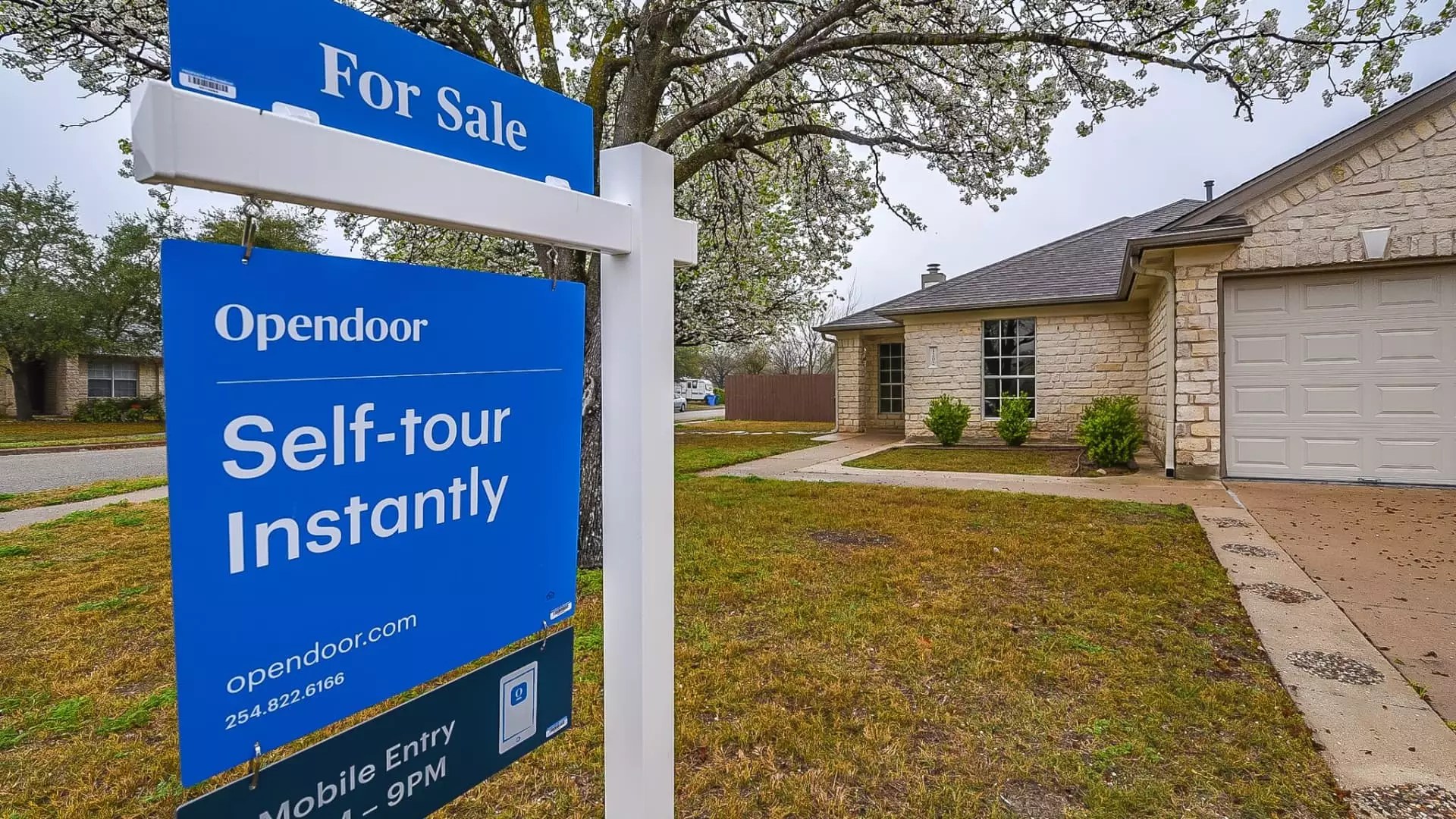The recent surge in Opendoor’s stock price, soaring nearly five times since July, stands as a stark reminder of how market exuberance often distorts reality. Investors, fueled by hope or perhaps the influence of high-profile hedge fund bets, have temporarily embraced the company’s prospects. Yet beneath this surface-level optimism lies a fragile and uncertain foundation. The company’s core business, rooted in buying and selling homes using advanced technology, has been battered by macroeconomic headwinds—most notably rising interest rates that dampen demand and threaten to undo years of aggressive expansion. This rally, driven by speculative bets rather than concrete performance, appears to be more of a mirage than a sign of true resilience.
An Unstable Platform Fueled by Speculation
At the heart of Opendoor’s recent volatility is its tumultuous financial history. The company went public during the frothy COVID-era housing boom, a time when cheap borrowing and low interest rates propelled home prices skyward. However, the tide turned sharply in 2022 as interest rates soared, choking off demand and causing revenues to plummet. From a peak of $15.6 billion in 2022, revenue has since fallen to just over a third of that, revealing the company’s vulnerability. Despite a modest revenue bump in the second quarter—an increase of merely 4%—the company still reports significant losses, narrowing but not eliminating the fiscal drain.
The fixation among investors on potential turnaround scenarios—highlighted by hedge fund manager Eric Jackson’s bullish stance—is unsettling. Betting on an eventual return to growth may be optimistic at best, yet it bypasses the grim reality of deteriorating market conditions. The declining housing market, exacerbated by persistent high mortgage rates and reduced buyer demand, underscores how fragile Opendoor’s prospects truly are. The company’s projections for the third quarter reflect a grim outlook: declining revenues and fewer homes acquired, signaling a business still struggling to find its footing.
Strategic Shift or Shrinking Surface?
While Wall Street cheered the company’s pivot toward a less capital-intensive referrals model, critics might see this as a desperate attempt to rebrand rather than an authentic strategic overhaul. The move away from aggressive iBuying is logical given the market context, but it also raises questions about the company’s long-term viability. Are these measures enough to sustain profitability? Or are they merely cosmetic changes designed to appease short-term investors while avoiding deeper structural issues?
Carrie Wheeler’s tone during the earnings call was optimistic, emphasizing that increased visibility offers an opportunity to tell a broader story. Yet, this “storytelling” feels disconnected from the bleak numbers. The company’s financial data paint a portrait of a business still grappling with declining demand, increasing competition, and an uncertain economic environment. Despite efforts to diversify, the market’s fundamental challenge remains: buying and selling homes in a high-interest-rate climate is inherently risky, and Opendoor’s core model is vulnerable to the cyclical nature of housing markets.
The Illusion of Turnaround and Market Manipulation
What is particularly troubling is how easily investor sentiment can be manipulated based on hope rather than evidence. The recent rally, bolstered by influential hedge fund bets and the promise of future growth, highlights a phenomenon where perception frequently outpaces reality. This not only inflates stock prices but also misleads retail investors who may not fully grasp the underlying financial fragility. The narrative of a company on the verge of a comeback, while appealing, obscures the ongoing structural challenges that continue to threaten its survival.
Opendoor’s story is a cautionary tale about market optimism blind to fundamental weaknesses. The company’s journey from a soaring pandemic-era darling to a stock trading at just a few dollars exemplifies how quickly fortunes can reverse. Investors should be wary of superficial rebounds—real recovery requires more than just optimistic projections and strategic pivots. It demands tangible signs of sustainable profitability and an environment conducive to growth, neither of which is yet evident in Opendoor’s trajectory. The company’s future remains uncertain, and the current rally should be approached with skepticism rather than enthusiasm.

